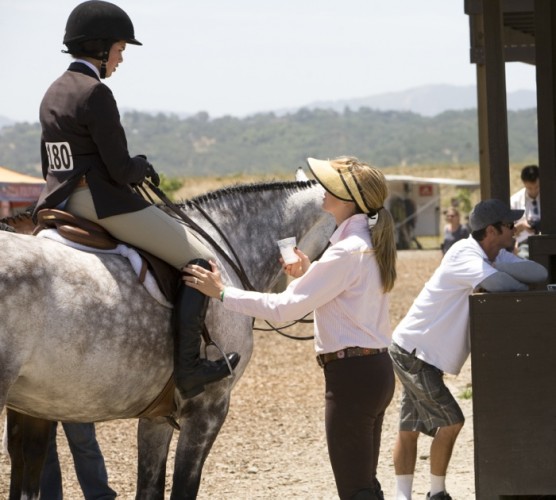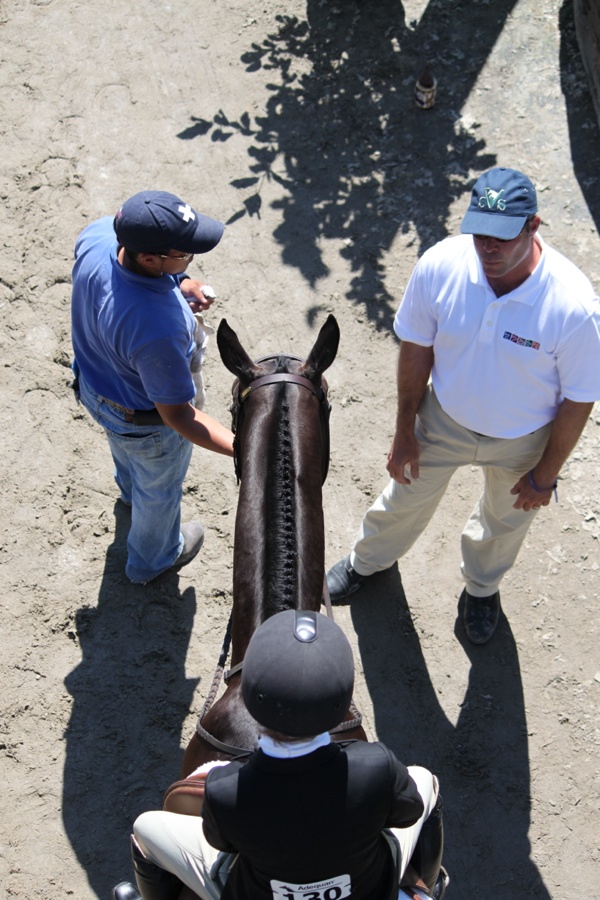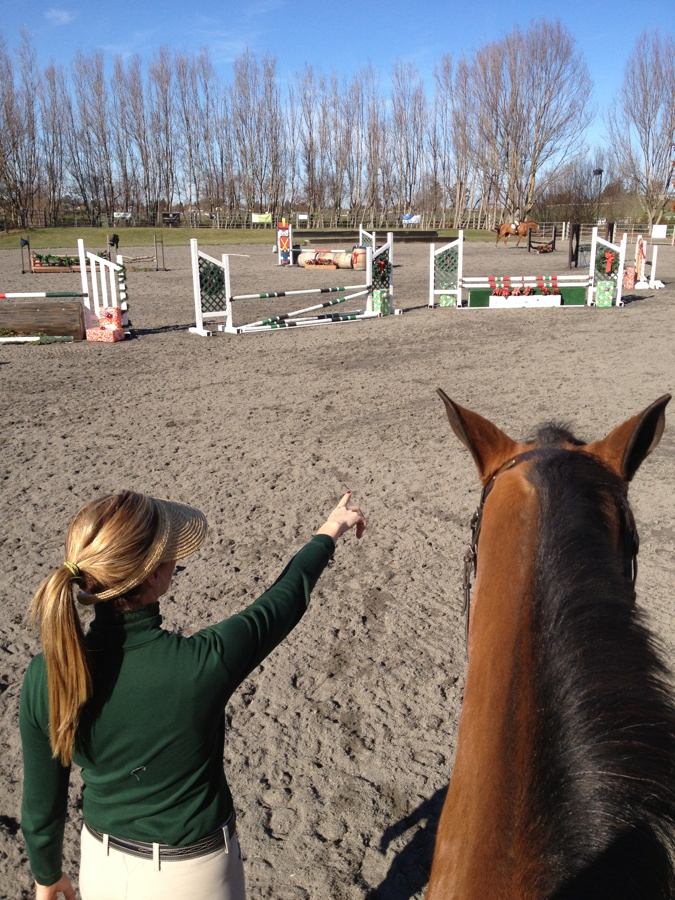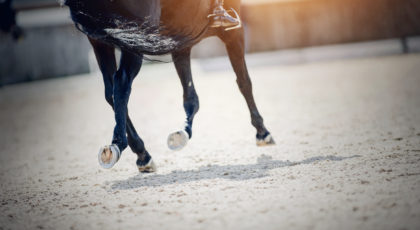Your trainer helps you with your horse in special, invaluable ways. They teach, demonstrate, encourage, cajole, enlighten, cheerlead, remind, remind again, motivate, facilitate, remind yet again, and generally provide you with the support you need to be your very best in the saddle. They like doing these things. They’re good at them—it’s their job. And, since you are an awesome team player, you ask yourself, “What could I do to help them with this process?”
Showing your appreciation with Starbucks cards and beautifully wrapped Christmas presents is a great start. But there are actually many specific things you can do to help your trainer help you improve your riding. Here are my top five:
1. Let them know what’s working
Did you appreciate how your trainer provided detailed reasons for why you were successful in that tough exercise? Was it helpful when the two of you watched video footage together, so you could discuss the round/exercise/test? Do you like it when they tell you a joke or act silly at the back gate to help you relax? Be a good teammate—let him or her know!
Letting your trainer know what is working will help you both. It’ll help them because it is kind, positive and supportive. It’ll help you because they can then integrate more of what helps you the most into their approach. It’s a win-win!
2. Do your homework
Your trainer may give you homework between lessons or (because you are motivated and inspired) you may make up your own. For example, when your trainer asks you to work on memorizing your courses/tests/patterns by jogging through simulated ones in your living room or backyard, do it! If they want you to build a new habit of keeping your hands above the martingale strap, visualize yourself riding with this new arm position—this homework will build habit and muscle memory. Of course, actual riding time between lessons is always a terrific time to work on physical homework, try to create a system to remind yourself of your homework before you get on your horse.
3. Be an athlete on and off your horse
Obviously, you’ve never strolled in late for a lesson with a Red Bull in one hand and a donut in the other—um, right? In addition to avoiding negative behavior (that might be colossally unproductive as well as upsetting to your trainer), you also want to be proactive about managing your athletic preparedness. Muscle strength, cardio fitness, nutrition/hydration, suppleness, and balance are just some of the things that will help you tremendously when you are riding. Having stamina and physical ability is a must in a sport that requires such subtle, clear, nonverbal communication with a large animal. Your trainer works hard to manage your horse’s readiness; you will help them immensely by taking care of your own.
4. Keep it simple
When you are highly motivated you can accidentally overdo it (happens to the best of us). You may do too much analysis, questioning, researching, processing and/or review. This is very well intentioned, but nevertheless it can slow down even the most spectacularly talented trainer.
Instead, help the process by looking for ways to summarize and simplify whenever possible. Whether it is asking for help clarifying two goals for the course instead of listing the 17 you think are essential, or saving a question until the end of a ride, you can be sure that your efforts to simplify are appreciated by your trainer (and your horse). Your focus will be intensified and improved when it is directed at a few clear, prioritized ideas.
5. Focus on the solution
When you have a rocky moment in the tack, keep your focus on the solution. Though you may be tempted to dissolve into an overly negative reaction—be strong! Trainers are all about helping you find and learn solutions to your challenges. But when they have to wade through large amounts of frustration, anger, etc., it is difficult for them to help you. Truly, was that the last time you will ever jump a one-stride/trot a serpentine/ask for the counter-canter? Of course not! Help them out by focusing intently on what it will take to do it right next time, and using your mental and physical skills to make the solution feel like second nature.
About the Author
Tonya Johnston, MA is an equestrian mental skills coach and an A-circuit competitor with a master’s degree in sport psychology. Her book, Inside Your Ride: Mental Skills for Being Happy and Successful with Your Horse is available on Amazon.com. Tonya can be reached at TonyaJohnston.com or on Facebook.


 August 24, 2016
August 24, 2016 



























